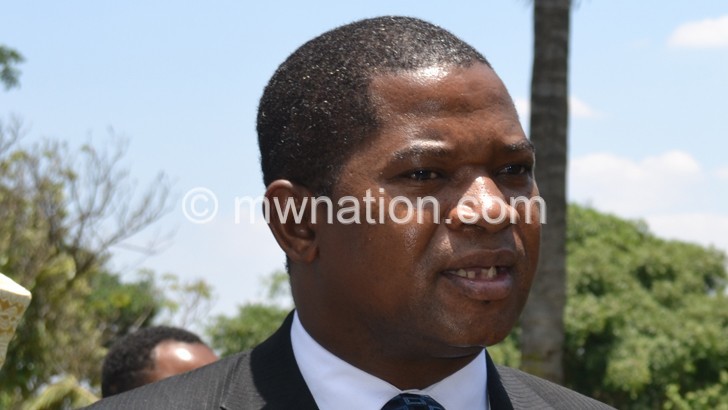Mixed fortunes for Escom on tariffs
Electricity Supply Corporation of Malawi (Escom) faces mixed fortunes to re-engage Malawi Energy Regulatory Authority (Mera) board to review its decision to hike tariffs by 31.8 percent instead of the proposed 60 percent.
While Mera chief executive officer (CEO) Collins Magalasi yesterday boldly rebuffed Escom’s bid to re-engage the regulator on the tariff review, the Millennium Challenge Account-Malawi (MCA-M) backed the power utility, saying a cost-reflective tariff would attract more independent power producers (IPPs).

Escom CEO Allexon Chiwaya on Tuesday told the media the power utility would like to re-engage Mera to reconsider its application for a 60 percent hike spread over a four-year period to enable it meet its goals.
But in a written response yesterday, Magalasi said Escom’s intentions to re-engage the regulator would not yield anything.
He said: “Mera’s decision is final and the base tariff review was done within the powers and functions of Mera provided under Section 9 of the Energy Regulation Act of 2004. In the event that Escom or any other person is not satisfied with our decision, they may appeal to the High Court within three months from the date of the decision. This is according to Section 43[1] of the Act.”
Escom, which initially unsuccessfully sought a K55 billion bailout from Treasury, said it seeks a cost-reflective tariff to enable it undertake projects that would help make it financially sustainable.
Escom officials cited the upgrading of the Kanjoka sub-station in Salima to produce over 35 megawatts, the tapping of power from Mozambique through Mangochi and the planting of pylons between Salima and Chintheche as some of the projects the company want to undertake with speed.
While Mera has put its foot down, MCA-M board chairperson Symon Itaye, during the handover of the Bwengu sub-station in Rumphi built by the MCA-M under the five-year Millennium Challenge Corporation (MCC) energy compact that expired on September 20 2018, urged Mera to reconsider Escom’s plea.
In an interview, Itaye said MCA-M was equally looking forward to cost-reflective tariffs to give Escom capacity to manage things well.
He said: “We are all aware that this is a negotiation process. So, whatever Escom is doing is trying to negotiate so as to get as much as what they asked. We believe that there will be a solution.
“But we understand that a cost-reflective tariff is very important. The role of MCA was to facilitate the study of cost-reflective tariffs. What remains now is between Escom and Mera. It is important for MCA-M because one of the issues we are looking at is having cost reflective tariffs for their sustenance of Escom.”
Itaye said it was important that Escom sustains itself financially to maintain and replace the investments MCA-M has put in the power sector as part of energy sector reforms.
Mera rejected Escom’s 60 percent power tariff increase application last week following nationwide public consultations. Mera said it also made the decision to protect the interests of consumers.
Escom had sought to increase tariffs from an average K73 per kilowatt hour (kWh) to K117 per kWh over a period of four years.
The 31.8 percent increase would translate to an average tariff of K95.15/kWh. n





